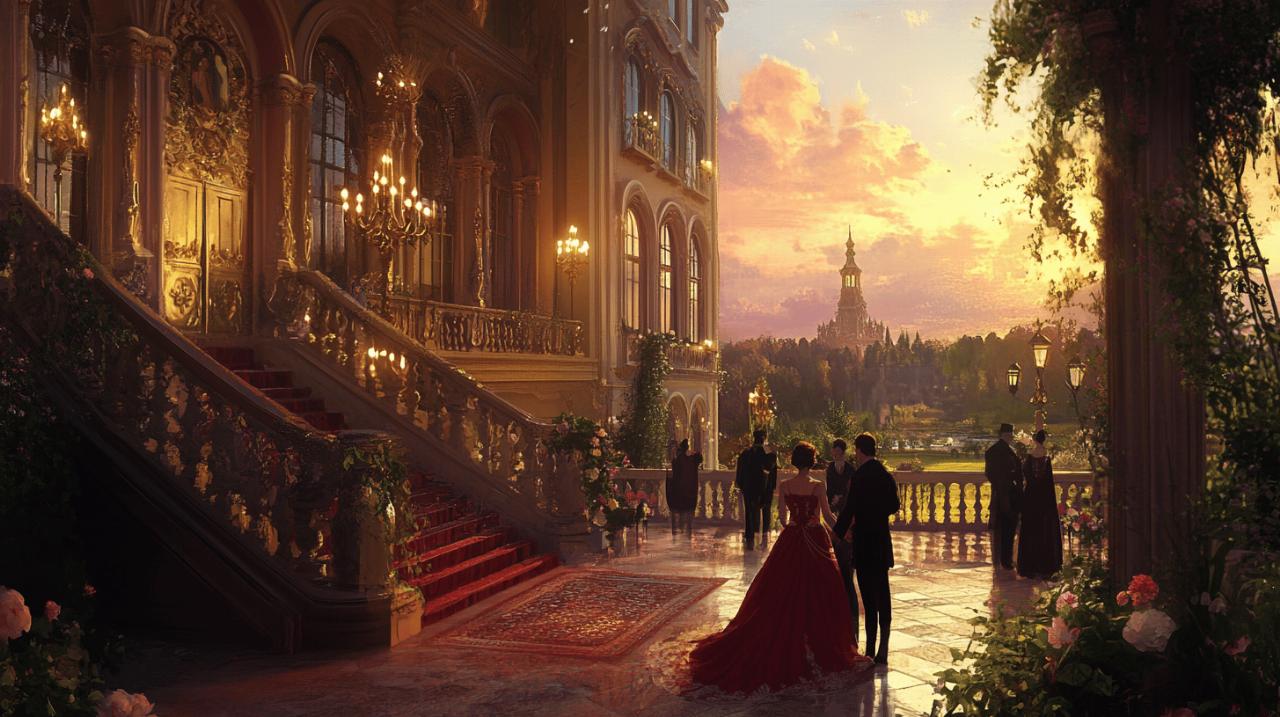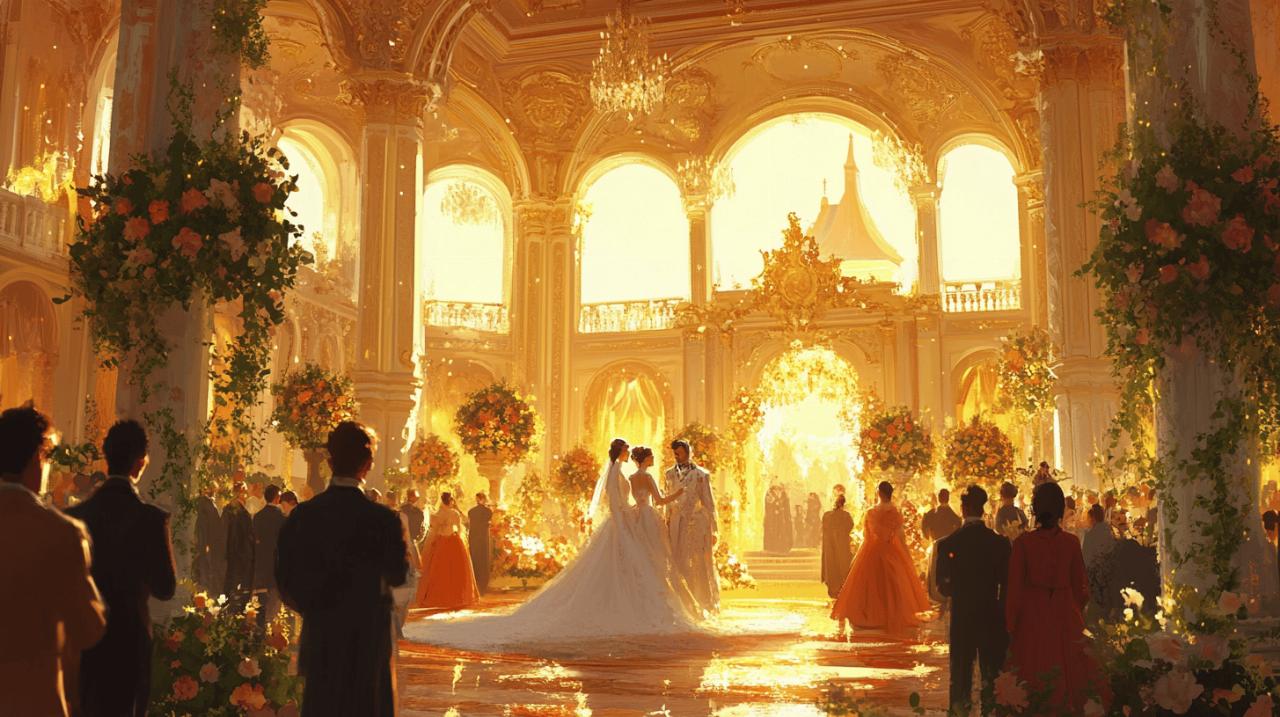The Reality of Organising a Castle Wedding: Budgeting Tips and Hidden Costs You Need to Know
Planning a wedding in a castle sounds like something straight out of a storybook, doesn't it? The grand architecture, the sweeping grounds, the sense of history in every stone. It's no wonder so many couples dream of exchanging vows in such a magnificent setting. However, whilst the romance of a castle wedding is undeniable, the reality of organising one involves careful consideration of costs, logistics, and a few surprises that might not be immediately obvious. Understanding what you're really signing up for can make the difference between a magical day and a financial headache that lingers long after the confetti has settled.
Understanding true castle venue costs beyond the headline price
What's actually included in your venue hire fee
When you first enquire about a castle venue, the quoted hire fee might seem straightforward enough. Yet, it's crucial to dig deeper and understand exactly what that figure covers. Many historic properties charge a baseline fee that secures the venue itself for a specific number of hours, but this rarely includes everything you need to host a full wedding celebration. Some castles provide basic furniture such as chairs and tables, whilst others expect you to bring in your own or hire them separately. Lighting is another area where costs can creep in unexpectedly. The atmospheric glow of chandeliers might be part of the charm, but if you want additional mood lighting or uplighting to highlight the architecture, that will likely come at an extra charge. Food and drink are often handled through approved caterers, and whilst some venues bundle catering into their package, others keep it entirely separate, allowing you to choose your own supplier. The average cost for food and drink alone can be around five thousand eight hundred and sixty-two pounds, so it's wise to clarify whether this is part of your initial quote or an additional expense.
The hidden extras that can double your budget
Beyond the basics, there are numerous hidden costs that can catch couples off guard. Service charges and VAT are non-negotiable in many cases, and these can add a significant percentage to your overall bill. If you're considering a venue abroad, such as a chateau in France, you might encounter additional complexities. French venues, for example, often exclude taxes and service charges from their initial quotes, and you may also face corkage fees if you wish to bring your own wine, or even cake cutting fees if you opt for an external baker. Another surprise can be cleaning and restoration fees, particularly at historic properties where any damage or excessive wear must be rectified to preserve the venue's integrity. Vendor travel and accommodation can also inflate costs, especially if your castle is located in a rural area. Photographers, florists, and other suppliers may charge travel fees, and in some cases, you'll need to provide meals and lodging for them as part of their contract. It's also worth noting that some venues require a minimum stay for guest accommodation, which can push up costs if you're obligated to book a certain number of rooms for multiple nights.
Navigating Supplier Challenges and Access Restrictions at Historic Venues
Working with approved suppliers versus bringing your own
One of the most significant considerations when organising a castle wedding is whether the venue requires you to use approved suppliers or allows you the freedom to bring your own. Many historic properties have longstanding relationships with select caterers, florists, and entertainment providers, and whilst this can simplify planning, it may also limit your options and potentially increase costs. Approved suppliers are familiar with the venue's layout and any restrictions, which can streamline the day, but their prices might reflect the exclusivity of their arrangement. On the other hand, bringing your own suppliers can offer more flexibility and the chance to negotiate better rates, though you'll need to ensure they're willing and able to work within the venue's specific requirements. Some castles have strict rules about what can and cannot be brought onto the premises, and failing to adhere to these can result in last-minute stress or additional fees. It's also worth considering that local vendors may charge travel fees, so even if you find a brilliant florist from the city, getting them to a remote castle might add a few hundred pounds to your floristry budget.
Logistics and timing restrictions that affect your bottom line
Historic venues often come with a unique set of logistical challenges that can have a direct impact on your budget. Many castles have strict timing requirements for setup and breakdown, which means your suppliers might need to arrive earlier or stay later than at a standard venue. This can result in additional labour charges, particularly if your caterer or decorator needs to work extended hours to meet the venue's deadlines. Access restrictions are another consideration. Some castles have narrow staircases, low doorways, or other architectural features that make it difficult to move large items like sound equipment or floral installations. If your suppliers need to make multiple trips or bring in specialist equipment to navigate these challenges, that's another cost to factor in. Parking can also be an issue, especially if the venue has limited space or requires suppliers to park off-site and shuttle their equipment in. This not only adds time but can also mean hiring additional staff to manage the logistics, which all contributes to the final bill.
The practical expenses: accommodation, transport, and weather contingencies
Guest Accommodation and Parking Considerations for Castle Weddings
 Ensuring your guests are comfortable and well-catered for is a key part of any wedding, and at a castle venue, this can involve more planning than you might expect. Many castles are located in rural or remote areas, which means your guests will need somewhere to stay overnight. Some venues offer on-site accommodation, but this often comes with a minimum stay requirement, meaning you might be obligated to book rooms for two or even three nights. This can be a significant expense, particularly if you're covering costs for family members or members of the wedding party. If the venue doesn't provide accommodation, you'll need to arrange hotel bookings nearby, and in rural areas, options can be limited. Shuttle services are often necessary to transport guests between the venue and their accommodation, especially if alcohol is being served. Arranging reliable transport, whether through taxis, private coaches, or car rentals, is another line item that can easily add up. Parking is also a practical concern. Whilst some castles have ample space for guests to park their motors, others may require off-site parking with shuttle services, or have restrictions on the number of vehicles allowed on the grounds at any one time.
Ensuring your guests are comfortable and well-catered for is a key part of any wedding, and at a castle venue, this can involve more planning than you might expect. Many castles are located in rural or remote areas, which means your guests will need somewhere to stay overnight. Some venues offer on-site accommodation, but this often comes with a minimum stay requirement, meaning you might be obligated to book rooms for two or even three nights. This can be a significant expense, particularly if you're covering costs for family members or members of the wedding party. If the venue doesn't provide accommodation, you'll need to arrange hotel bookings nearby, and in rural areas, options can be limited. Shuttle services are often necessary to transport guests between the venue and their accommodation, especially if alcohol is being served. Arranging reliable transport, whether through taxis, private coaches, or car rentals, is another line item that can easily add up. Parking is also a practical concern. Whilst some castles have ample space for guests to park their motors, others may require off-site parking with shuttle services, or have restrictions on the number of vehicles allowed on the grounds at any one time.
Budgeting for Marquees and Wet Weather Alternatives
The British weather is famously unpredictable, and if your castle wedding includes any outdoor elements, you'll need a solid backup plan. Marquee hire is one of the most common solutions, and whilst it can provide a stunning setting, it's also one of the more expensive aspects of wedding planning. The average cost for marquee hire can be around five thousand four hundred and sixty-eight pounds, and this often doesn't include flooring, heating, lighting, or furniture. If your venue doesn't provide tables and chairs, these will need to be hired separately, adding further to the expense. Even if your ceremony is planned indoors, having a tent or covered area for the reception can be a wise investment, particularly if you're hosting a summer wedding when the weather can turn on a sixpence. It's also worth considering the cost of heating if your wedding is in the cooler months, as historic buildings can be draughty and keeping guests warm might require additional equipment. Weather contingency planning isn't just about comfort; it's about ensuring your day runs smoothly regardless of what the skies have in store.
Smart budgeting strategies to make your castle wedding affordable
Where to Splurge and Where to Save at Stately Home Venues
Creating a realistic budget for a castle wedding means making thoughtful decisions about where to allocate your funds. On average, the total cost of a wedding in the United Kingdom, including all suppliers, was around thirty thousand three hundred and fifty-five pounds in recent years. Venue-related expenses, including hire, food, drink, travel, and accommodation, typically account for around forty-five per cent of the overall budget. This means that venue hire alone can average around six thousand one hundred and fifty-two pounds, though this can vary widely depending on the location and prestige of the property. Photography, outfits and beauty, and the honeymoon are other areas where couples tend to spend a significant portion of their budget, so it's important to balance these against the costs of the venue and its associated expenses. One strategy is to identify which elements of your day are most important to you and allocate funds accordingly. If stunning photography is a priority, you might choose a simpler floral arrangement or a less elaborate cake. Conversely, if the castle setting is the centrepiece of your vision, you might opt for a smaller guest list to reduce catering costs. Entertainment, finishing touches like stationery and favours, and ceremony fees are typically smaller budget items, but they can still add up, so it's worth reviewing every line item carefully.
Getting accurate quotes and avoiding budget blowouts
One of the most effective ways to avoid unpleasant surprises is to request detailed, itemised quotes from every supplier and the venue itself. Don't be afraid to ask questions about what's included and what isn't, and make sure any additional fees, such as service charges, VAT, or gratuities, are clearly outlined. If you're planning a wedding abroad, foreign exchange costs can fluctuate, so using currency tracking tools or services like Wise can help you lock in favourable rates and avoid unexpected increases. Building a budget buffer is also essential. Currency fluctuations, last-minute changes, or unforeseen expenses can quickly derail your plans if you've spent every last penny. A contingency fund of around ten to fifteen per cent of your total budget can provide peace of mind and ensure you're not scrambling for funds as the big day approaches. Working with a local wedding planner can also be invaluable, particularly if your chosen castle is in a region you're not familiar with. A planner can help negotiate contracts, recommend reliable suppliers, and navigate any cultural or logistical challenges that might arise. They can also assist with legal requirements, such as documentation and translations, which can be particularly important for weddings abroad. Finally, remember that wedding planning apps and budget allocation tools can help you stay organised and track your spending in real time, making it easier to spot potential overruns before they become a problem.
